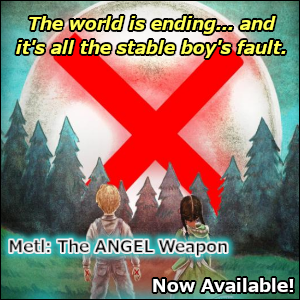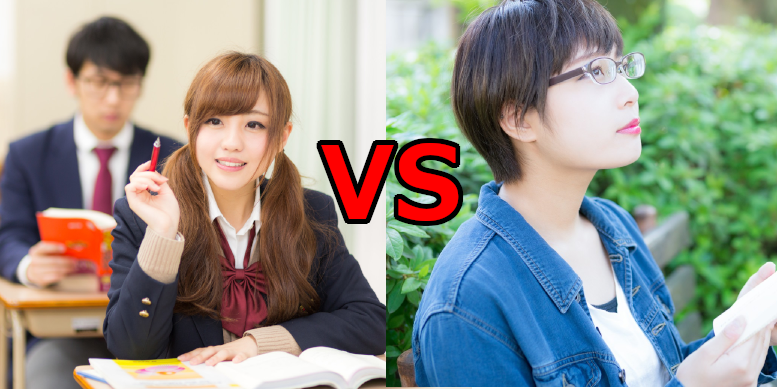What are the similarities and differences between writing high school vs. college characters?
A lot, actually!
Let’s discuss, then map out a story both ways, to see how different they are.
During the last stream, a subscriber requested that we go over “the differences in writing high school characters vs. college characters.”
You can watch the full video here to or scroll down for notes/highlights.
Writing High School vs. College Characters
- Determining the age of your characters might not seem super important, but it’s HUGE
- The age of your characters will affect everything from suspension of disbelief to marketing of the book
- While there are plenty of different ages to choose from, today we’ll focus on two big ones: high school vs. college
The Similarities
- Surprisingly, there are a lot of typically “college age” things that you can do with high school students
- Heavy subjects: The Fault in Our Stars, The Hate U Give, Playing With Matches
- Sexy times: Looking for Alaska, Almost Perfect
- Violence: The Hunger Games, One of Us is Lying
- No parents: Unwind, Ready Player One, Scythe, Looking for Alaska
- Sports, school clubs, new friends… all of it and more can be done with either group
- Instead, there are 3 subtle differences between high school/college student characters
The Differences
***These are not hard and fast rules, but general guidelines***
#1. Rebellion vs. Reconciliation
- Most high school characters focus on rebelling against society/parents, whereas college characters focus more on reconciling with society/parents
- For example, in Emergency Contact by Mary Choi, both main college characters starts off resenting their mothers, but over the course of the novel both of them forgive their parents for the bad things they’ve done, with different degrees of success
- High school students reconciling with their parents/society might come off as goody two shoes, and college students rebelling against their parents/society might come off as jerks
#2. Self discovery vs. self confidence
- Most high school characters have a lot of firsts (first love, first kiss, first sexy times, first time defending themself, etc.) whereas most college characters have already been through a lot of that and their firsts are more pragmatic (first career, rent, interviews, etc.)
- For example, in Fangirl by Rainbow Rowell, the main college character loves writing fan fiction and is unapologetic about it, she sticks up for herself and does what she wants — if it was a high school story then there’d likely be more bullying and self-questioning
- High school students tend to still be figuring out who they are and the conflicts are more internal, whereas college students tend to be more confident in who they are and the conflicts are more external
#3. Story reason for college
- There are a lot of things that are easier to do in college than in high school, such as: normalized drinking/drugs, fraternities/sororities, scholarships, living isolated/alone, advanced research, etc
- For example, in Vicious by Victoria Schwab, one of the main college characters is doing his thesis on superhuman powers, which would be a lot more difficult to pull off with high school characters
- Also, in The Lie by Chad Kultgen, the 3 main characters all do drugs/drink/sexy times, but it’s normal since they’re in college, college also provides the stakes of the story: failing/dropping out
- High school students can do those things too, but they might come off with a different tone: advanced research might be seen as a mad scientist, alcohol/drug use might be seen as self-destructive, dropping out is a lot harder, living alone will require much plot-finagling, etc
But there’s one more difference between the two…
The Biggest Difference: Publishing & Marketing
- The honest truth is that selling a book with college characters is harder than selling a book with high school characters
- High school characters are easy to market as YA, since they’re the same age as the intended audience, but college characters are murkier: too old for YA, too young for adult
- There is “new adult,” but that genre requires steamy sexy times, so it’s limited in scope
- If you can’t justify having college characters with one of the above 3 “differences,” then you may want to use high school characters instead
After that, we mapped out a story two different ways, one with a main character in high school, and another with a main character in college, focusing on the differences that we discussed.
Chat voted that we use this story idea: a student has an imaginary friend.
Here’s what we came up with:
High School Character’s Plot
(Rebellion against parents/society, self discovery)
- PLOT: Childhood friend died young, caused trauma for MC to invent imaginary friend, happy but isolated for years because of it, move to new high school and want to blossom but imaginary friend tries to sabotage it
- Emotions: Embarrassment about the imaginary friend, trying to cover it up
- Girl/boyfriend relationship with imaginary friend: practicing kissing, awkward crush stuff, practice dates, etc.
- Parents: Always encouraging the MC to invite people over, fostering the few relationship they have
- Imaginary friend as guide: navigating their oppressive parents
- Society: Feel pressured to go out and socialize, go to events/dances that they don’t want to
- Research: Internet searches and talking with psychiatrist
- Drug use: Makes the imaginary friend go away
- Separation: Moving away from the imaginary friend for the first time to go off to college
College Character’s Plot
(Reconciliation with parents/society, self confidence, story reason for college)
- PLOT: Childhood friend died young, caused trauma for MC to invent imaginary friend, happy but isolated for years because of it, move to college and want to major in psychology and become a psychiatrist to help other kids who went through what they went through and as it goes along they sadly start to lose the imaginary friend
- Emotions: Has already dealt with embarrassment, now takes pride in imaginary friend
- Girl/boyfriend relationship with imaginary friend: more explicit sexy times, I Got Pregnant By My Imaginary Friend!
- Parents: Have come to terms with the imaginary friend thing, don’t push the issue, they even ask how the imaginary friend is doing sometimes (accepting because the MC has a great scholarship and they’re smart)
- Imaginary friend as guide: coming to terms with not-so-great parents
- Society: Accept their place in society and are comfortable, happy staying in with their imaginary friend
- Research: Doing a thesis on imaginary friends
- Drug use: Makes other people see their imaginary friend
- Separation: moving away from your imaginary friend for your first career
You can see how different both versions of the same story ended up, just by focusing on what high school characters and college characters do better than each other in stories.
Be sure to check out the video for more discussion and examples!
If you want to join us and help write a story by trolling in chat, or share your own writing for feedback, then we’d love to have you join us on Twitch.
And you missed the stream, you can still watch them on the YouTube channel or watch the full stream reruns.
Hope to see you next time, friend! Featured image: Pakutaso (1, 2)
Featured image: Pakutaso (1, 2)
